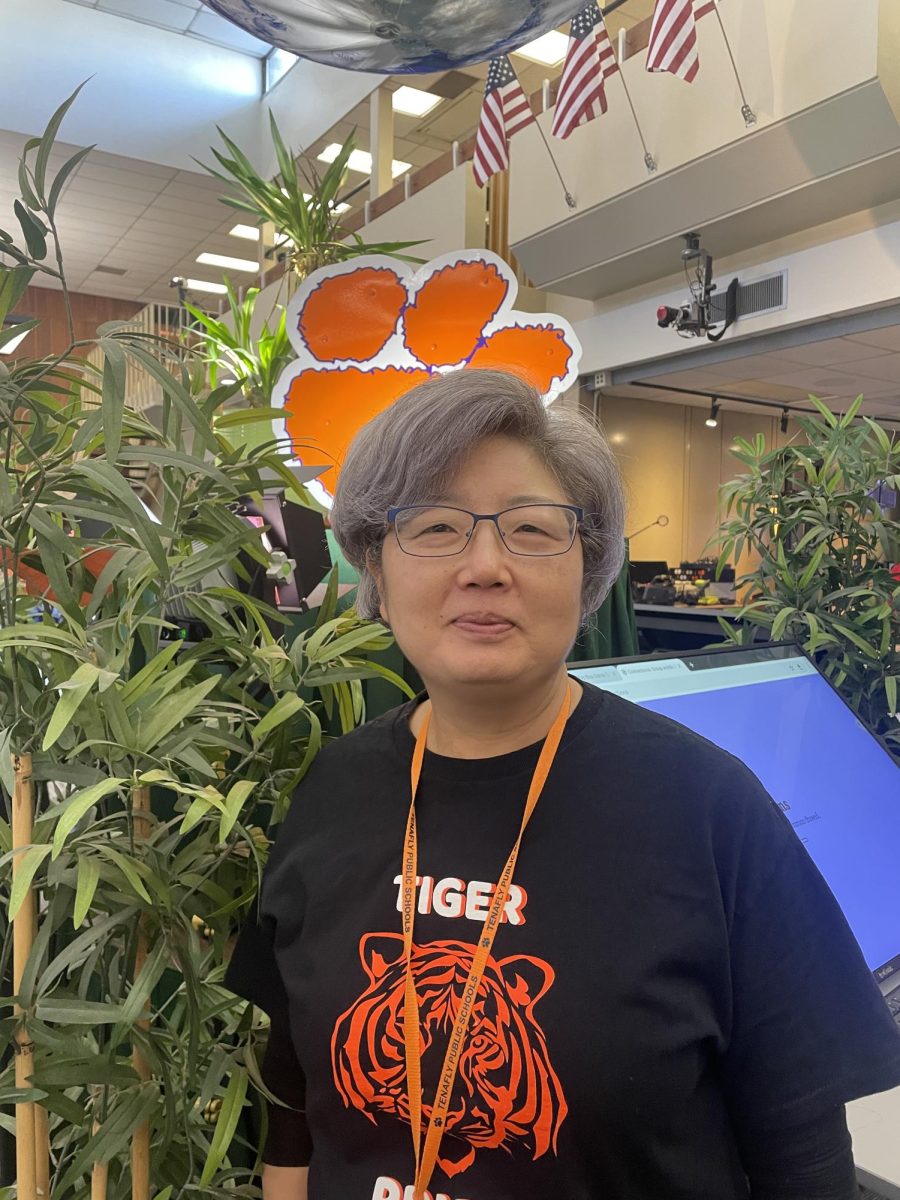If you happen to walk in on the bell, you are “dead” to Señora Kim. She takes pride in punctuality and precision—not to mention her precisely coiffed, stylish hair. Kim is always determined and self-assured when making decisions and solving problems. Yet, under that cover, there still lives a girl who once grappled with her multicultural identity.
As many Tenafly students might relate, adapting to a new life in a foreign country is tough. Not only are parents’ expectations high, but challenges tag along regarding the cultural differences. Kim encountered this dilemma not once, but twice. She grew up in Argentina, where she immersed herself in Korean culture, and later moved to America to pursue her career.
“I feel proud of being Argentinian,” Kim said. “I think I received a very good education.” Kim lived her childhood and adolescence in Buenos Aires—the so-called “little Paris of America.” However, while Argentina is a beautiful country filled with kind and warm people, Kim always felt that she was sometimes viewed through colored lenses and has experienced levels of discrimination. “I did feel a little bit of discrimination or fear that people looked at me differently,” she said. “In Argentina, it was very common for me every single day to walk down the streets and have somebody say ‘little Chinese girl’ or ‘little Japanese girl.’” Aside from outside impacts, Kim was most disheartened by the absence of her parents in her childhood due to the language barrier. “I remember seeing all the Argentinian parents showing up for events, but mine never did because they don’t speak the language, and I just wished they could engage like other Argentinian parents,” Kim said. Though she grew up Argentinian, she felt that a thin wall still existed between her and her Argentinian identity.
At the age of 18, Kim and her family moved to America as a result of Argentina’s economic crisis in the 1980s. “I didn’t speak the language,” she said. “I left all my friends. I left everything I knew.” To Kim, this experience was traumatic; she struggled for years to learn English and adapt to American culture When Kim first moved, she felt the most distinct difference between mannerisms. Kim’s adopted speaking style and mannerisms made her feel disconnected from and partially unfit for American culture.
“I’m very expressive when I speak. Sometimes I get very heated or passionate over some topic,” she said. “[This is] so unlike Korean culture, but also [it’s] not something that you see a lot in American culture because in American culture, when you speak, you want to be more mannered. You’re supposed to speak calmly. You’re not supposed to show emotion. So for me, that was challenging and is still”
Alongside Kim’s Argentinian identity and American life, she was deeply influenced by her parents, who possessed the old Korean cultural ideologies. Under her parents’ influence, Kim grew to realize that she never integrated into Korean culture. “Korean people are very subdued, and usually, Asian people are supposed to require submissive, calm [traits]. I am totally the opposite,” she said. In addition to her incompatibility with Korean culture, Kim is not a fan of Asian culture when it comes to education.
“I think that the society, the culture in Korea is very stressful, especially the education system,” she said. “I think that in Asian countries like China, Japan, Korea, there’s too much pressure … on the kids. I did not fit perfectly, and it really made me feel like it affected my self-esteem.”
For years, Kim has felt that she needs to fit 100% into either Argentinian, Korean, or American culture. “Growing up was challenging because I didn’t know who I was,” she said. However, years after living in America, Kim came to realize that she didn’t have to limit herself into one culture. “I didn’t know that I could be all three; I don’t have to be specifically one or be 100% one. And I think that’s the beauty of our American culture; in American culture, you can be yourself.”
While being multicultural is perplexing, it is beyond advantageous to acquire the languages, customs, and cultures of all three. Today, Kim no longer grapples with her multicultural identity. Instead, she takes pride in it. Incorporating humor from all three cultures, Señora Kim manages to always fill her classes with laughter and leave students craving for more of her international humor. Kim’s journey was adventurous, yet she persevered and triumphed.













































































































































